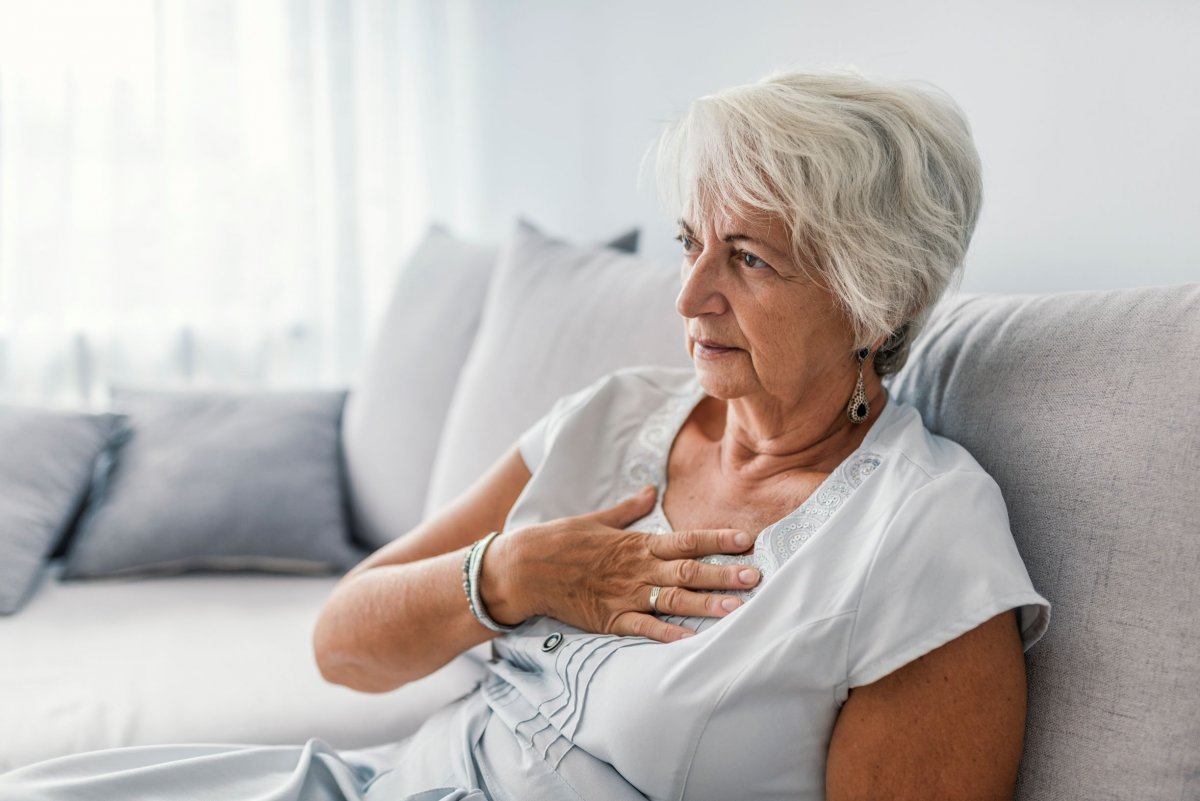When you think of heart attack symptoms, what comes to mind? At the top of the list is probably chest pain – one of the most notorious and well-known symptoms. However, it certainly isn’t the only sign of a heart attack, let alone the most common – especially for women.
There’s a common misconception that heart disease and heart attacks are more likely to affect men than women. But in actuality, heart disease is the leading cause of death among both American men and women.
And while heart attacks are not necessarily more prominent in women than men, they’re often more fatal. Plus, women are more likely to have a second heart attack in the 5 – 6 years after their first one. But why is that? Let’s dig a little deeper.
Women Experience Distinct Heart Attack Symptoms
“The truth is every heart attack is unique, and the way that each person experiences a heart attack is different,” says Anu Vellanki, MD, a non-invasive cardiologist with Georgia Heart Institute. “For some, it may cause severe or intense symptoms, while others may not experience any signs at all.”
Oftentimes, women may have symptoms that seem entirely unrelated to a heart attack. In fact, they’re often overlooked or assumed to be caused by something else, like stress, a stomach bug or post-workout aches.
Women who are experiencing a heart attack may notice one or more of the following symptoms:
- Clamminess
- New or extreme fatigue
- Indigestion
- Lightheadedness
- Malease
- Nausea or vomiting
- Pain in the arms, back, neck, jaw or abdomen
- Pressure, fullness, squeezing or pain in the chest
- Shortness of breath
- Sweating
Women May Be Less Likely to Seek Heart Attack Treatment
If heart attack symptoms are misidentified or assumed to be caused by something else, women may inadvertently delay the urgent treatment that’s needed. The more time that passes between the onset of a heart attack, the less effective treatments are – and the more severe and life-threatening it becomes. Early intervention is crucial.
“When a heart attack occurs, minutes matter,” says Dr. Vellanki. “Prompt medical treatment is necessary to limit damage to the heart and ensure the body has the oxygenated blood it needs. The longer the heart is deprived of oxygen, the more damage occurs. Unfortunately, this damage can cause long-term effects on heart health.”
Heart Attacks Have A Bigger Impact On Women
Even when heart attacks aren’t fatal for women, they often take a more significant toll on women’s health. This may be because women are typically older than men when they have a heart attack – the average age for women is 70, which is nearly 4 years older than men.
There are a variety of factors that may lead to this age disparity, including when women experience menopause. That’s because menopause affects a woman’s levels of estrogen, a hormone that actually offers some heart health protection.
“Women are also more likely to have underlying risk factors or health conditions that go undiagnosed or untreated,” says Dr. Vellanki. “This means conditions like high blood pressure, high cholesterol or diabetes progress to more advanced stages, so when they’re finally treated or they cause a heart attack, it’s more severe.”
How can you protect yourself?
It’s important for women to know and recognize all of the symptoms of heart attack and to seek emergent treatment when they occur. It’s also important to get serious about disease prevention and to advocate for your own heart care.
“Oftentimes, we see women focusing on the health of their partner or their children, so much so that they overlook or sacrifice their own health needs,” urges Dr. Vellanki. “Even if you consider yourself healthy or you don’t notice any abnormal symptoms, stay up-to-date with preventative screenings and proactive care.”
“Remember – it’s far easier to take steps now to support and protect your heart health than to experience something more serious, like a heart attack, later.”
Women’s Heart Center
At Georgia Heart Institute, we recognize that long-term heart health takes dedication and by taking the time to connect with each patient, we’re able understand their unique needs and concerns. In addition to disease prevention and treatment, we work with you to provide specialized, whole-person care that ensures your heart stays at its healthiest – now and always. Learn more about our Women’s Heart Center!


